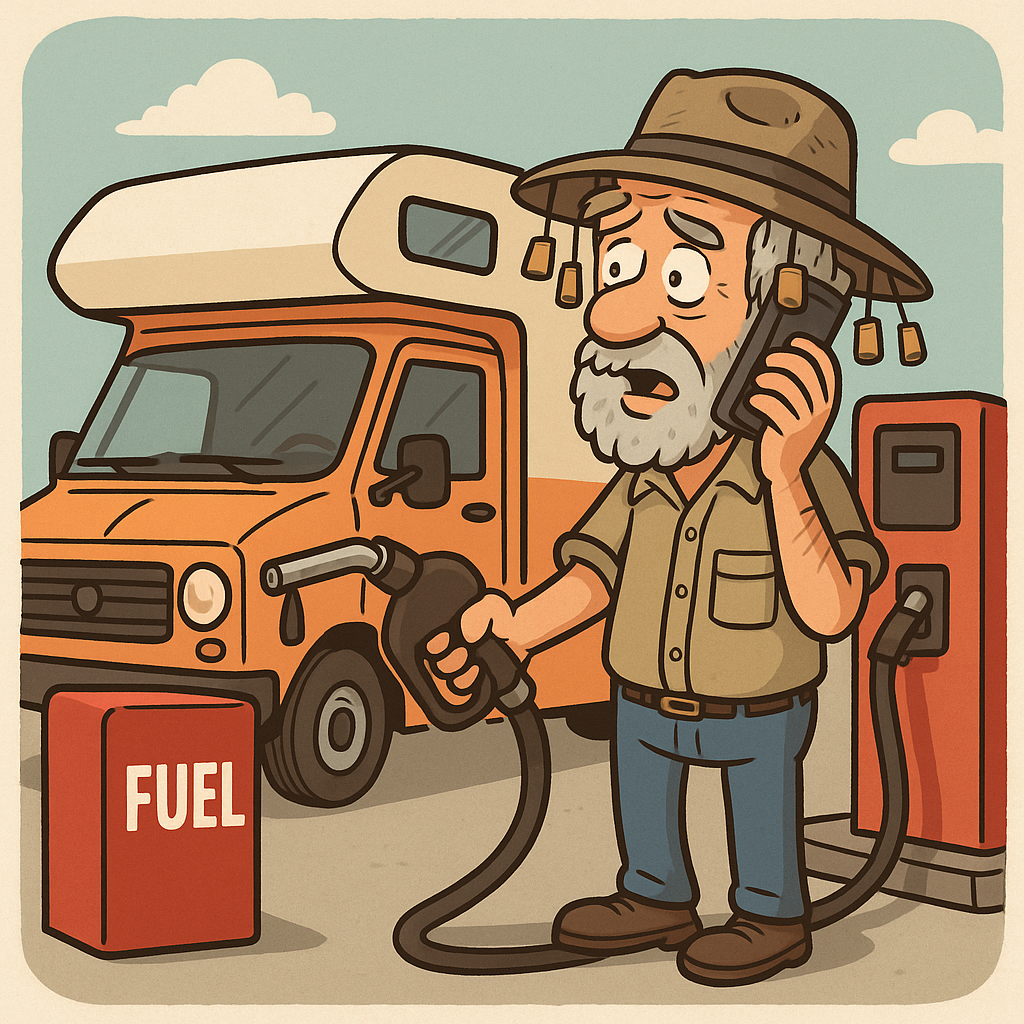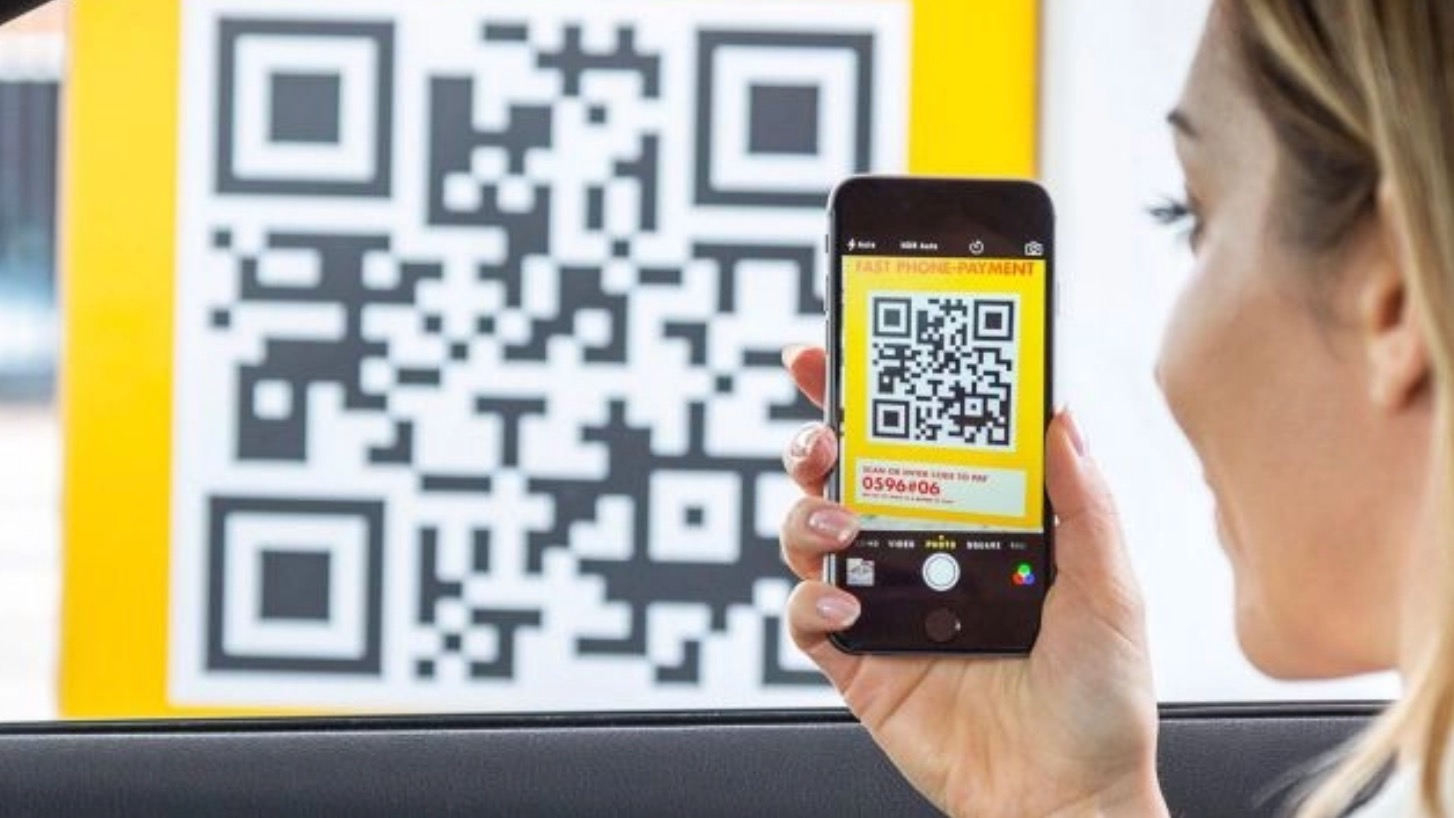Every time I pull into a petrol station—whether I’m on a long drive or just popping in to fuel up—I see those signs asking us to turn off your mobile phone.
Honestly, as much as I’d like to think it’s an old wives’ tale or just some leftover safety overkill, the question of whether mobile phones can actually cause a fire at a service station has crossed my mind more than once.
So, what’s the deal? Is there any truth to the idea that our phones can cause a fiery disaster? Let’s break it down and explore the world of fire hazards at service stations, and how mobile phones factor in.

There have been zero confirmed cases in Australia over the past 35 years where a mobile phone has been conclusively proven to cause a fire at a service station.
Oh, the irony!

If mobile phones are such a fiery risk, then why are we suddenly encouraged to scan QR codes and pay for petrol with them?
Perhaps the “hazardous” phone is only dangerous when it’s holding up a line at the pump, not when it’s filling your tank, right?
Can a Mobile Phone Really Cause a Fire?
To put it bluntly: mobile phones causing fires at service stations is an extremely rare occurrence. The risk of a phone sparking a blaze while refuelling has been largely debunked. According to various safety agencies and fire departments worldwide, there is no solid evidence to suggest that a mobile phone could trigger a fire in the presence of flammable fuel vapours.
The myth likely stems from concerns about electrical sparks. However, the electromagnetic radiation emitted by mobile phones is far too weak to ignite anything, let alone petrol vapours. The mobile phone itself isn’t the issue; it’s more about the fact that service stations can be hazardous places in general, especially if safety precautions aren’t followed.
So, why do some petrol stations ask us to turn off our phones? The most reasonable explanation seems to be that it’s just a precautionary measure. The signs are largely there to reduce distractions while refuelling—after all, who hasn’t been guilty of texting while filling up, right? It’s more about minimising risks in case something else goes wrong (like a static discharge or a spark from faulty equipment).
What Are the Other Likely Causes of Service Station Fires?
hile the fear of mobile phones is pretty overblown, the risks of a service station fire are very real, and there are a few other common causes that are far more likely to result in a blaze.
- Static Electricity:
This is one of the most common sources of ignition at petrol stations. Static electricity can build up on your body, especially in dry conditions, and when you touch the fuel nozzle, a small spark could ignite the vapours. That’s why it’s recommended to touch a metal part of your car (away from the petrol tank) before fuelling up to discharge any static charge. - Faulty Equipment or Leaking Fuel:
Another significant risk is leaking fuel or malfunctioning pumps. If a petrol pump isn’t maintained properly, it could lead to sparks or fuel vapour being released. It’s always important to ensure the equipment is functioning well, and this is why regular inspections and maintenance are mandatory at most stations. - Improper Handling of Fuel Containers:
If you’re using a jerry can or other fuel containers, there’s an increased risk of spillage or improper handling, both of which can easily lead to fires. If the fuel is exposed to an ignition source—whether from a car exhaust or a stray spark from a motor—things can go south quickly. This is why most stations have strict regulations on handling fuel in portable containers. - Vehicle Malfunctions:
Sometimes, the vehicles themselves are the culprit. If a car has an electrical fault, such as a short circuit, it could spark and potentially ignite fuel vapours. This is why you’re often advised to turn off your engine while refuelling. There have been instances where a faulty engine or overheated parts have caused fires at the pump, especially in older vehicles. - Unattended Cooking or Heating Devices:
This one might sound a bit out of place, but some service stations—particularly those with attached cafés or convenience stores—might have equipment like heaters or grills. If not properly maintained, these could pose a fire risk, especially in high-traffic areas.
Why the ‘Turn Off Your Phone’ Rule Still Stands
As much as we know that mobile phones aren’t likely to cause a fire at a petrol station, the rule to turn them off persists. It’s mostly about minimising risk in an already hazardous environment. While the idea of phones sparking fires may be more myth than fact, turning them off or putting them away helps us stay focused on the task at hand. And let’s face it—there’s something about standing there holding the nozzle and scrolling through social media that doesn’t seem like the best idea.
My Verdict
In short, you can rest easy—your phone is not going to burst into flames at the petrol station. The true fire risks stem from things like static, faulty equipment, and improper fuel handling. But it’s always good to err on the side of caution. So, next time you’re pulling into a service station, maybe just turn off your phone (and maybe avoid blasting the music too loud) to focus on refuelling without any distractions.
If nothing else, it’s a small price to pay for safety and avoiding any unnecessary drama!




Leave A Comment